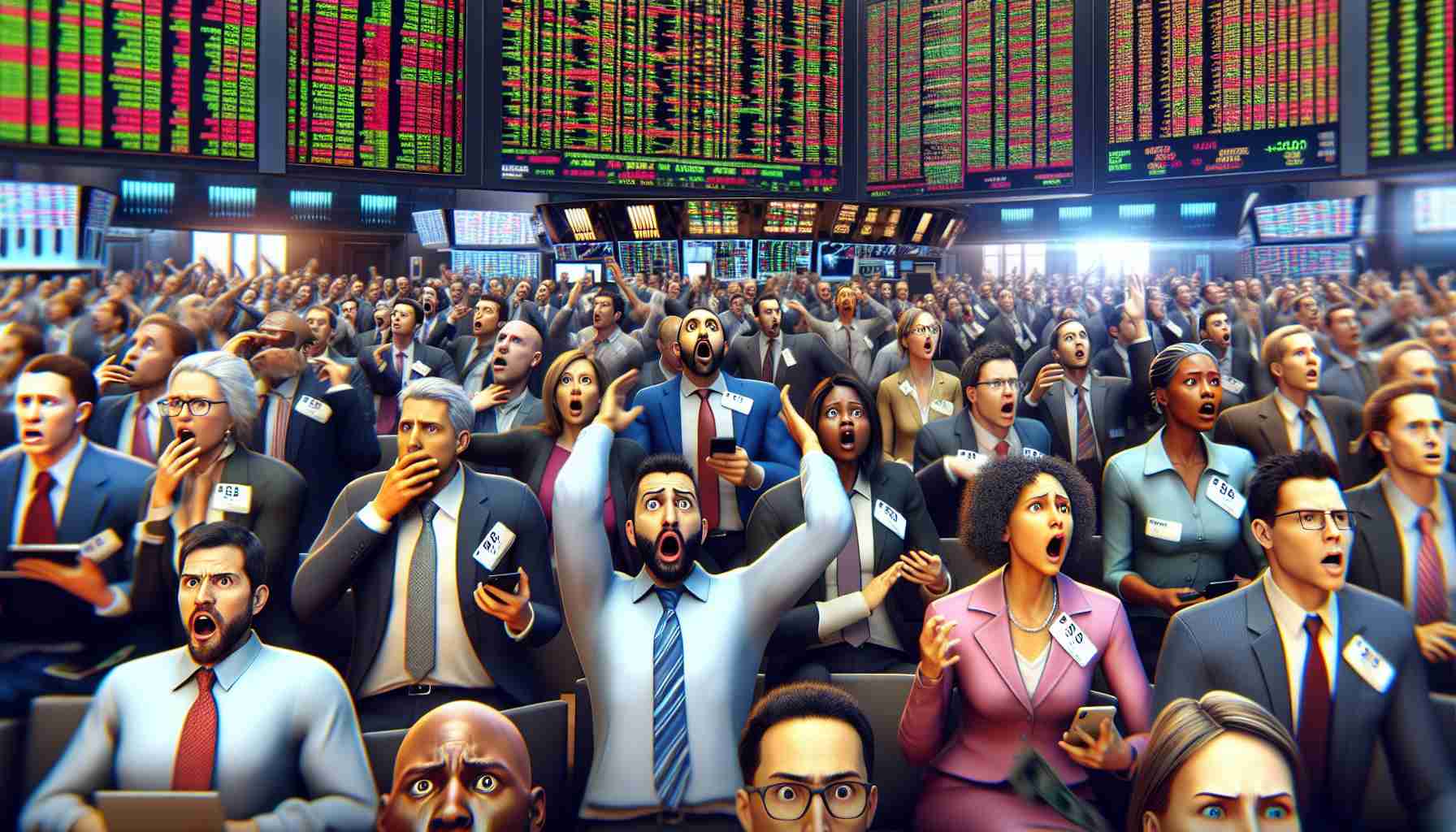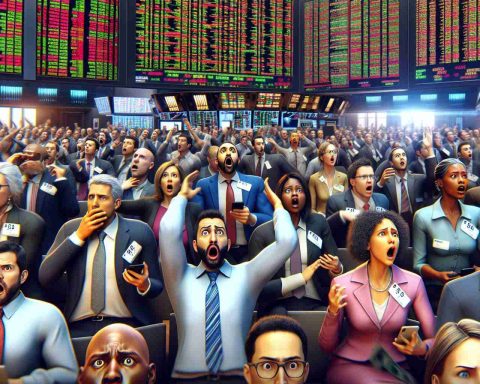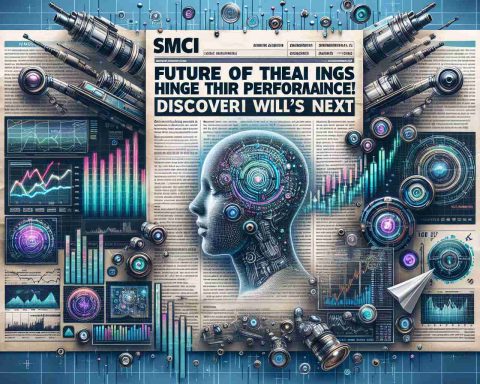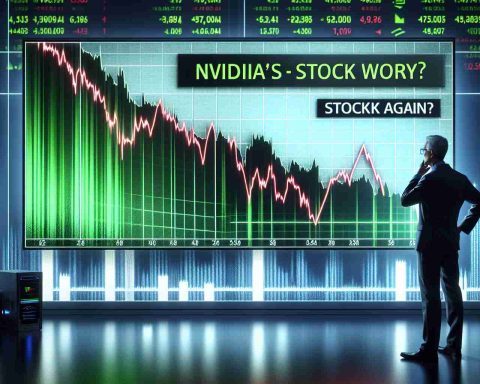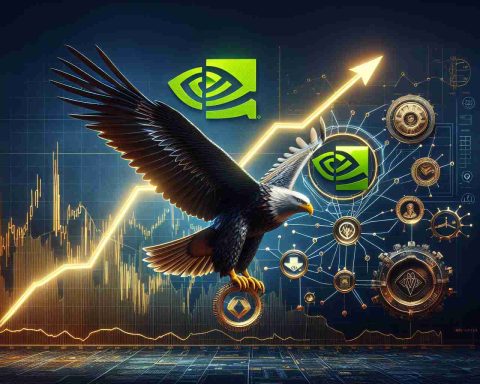Stock Market Overview
In an unpredictable trading day, investors navigated a bumpy session that ultimately left the Dow Jones Industrial Average on a positive note. The Dow surged upwards, concluding the day with a gain of 221.16 points, marking a 0.5% increase, and ending at 42,518.2. Meanwhile, the S&P 500 posted a modest rise of 0.11% to close at 5,842.9, whereas the tech-centric Nasdaq Composite faced a slight dip of 0.23%, ending at 19,044.3.
Recent data from the Producer Price Index (PPI) indicated a smaller-than-expected rise of 0.2%, falling short of the anticipated 0.4%. This report eased some of the market’s inflation fears, although core PPI remained unchanged. Investors were left pondering the implications of these figures while eagerly anticipating the Consumer Price Index (CPI) report scheduled for Wednesday.
As major tech players like Nvidia and Meta Platforms experienced losses of 1.1% and 2.3%, respectively, sectors such as financials, utilities, and materials thrived, each recording gains of over 1%. Notably, the SPDR S&P Regional Bank ETF and SPDR S&P Bank ETF both surged by an impressive 3%. The small-cap stocks in the Russell 2000 also outperformed, climbing 1.1%.
In a contrasting twist, Bitcoin saw a notable rise of nearly 4%, surpassing $96,500, while crude oil prices dipped 1.3%, settling around $77.75 per barrel. Overall, trading volumes decreased, yet advancing stocks outnumbered those declining, hinting at cautious optimism in the market.
Market Dynamics: A Reflection of Today and Tomorrow
In the ever-fluctuating landscape of global markets, recent trading sessions have painted a vivid picture of investor sentiment and economic health. The substantial rise in the Dow Jones Industrial Average by 221.16 points, or 0.5%, signals a moment of optimism amid an array of uncertainties, such as inflation concerns highlighted by the Producer Price Index (PPI) figures. With this backdrop, the connection between market performance and broader implications for humanity, the economy, and the environment becomes increasingly relevant.
The interplay between financial markets and environmental sustainability cannot be understated. As investors pour resources into burgeoning sectors, such as renewable energy and sustainable technology, there is a ripple effect that fosters innovation while addressing environmental challenges. For instance, despite fluctuations in conventional sectors, the resilience of financial institutions and utilities reflects a growing commitment to sustainable practices. The surge of financial stocks indicates a market increasingly supportive of investments that prioritize environmental, social, and governance (ESG) criteria.
Moreover, the decline of tech giants like Nvidia and Meta Platforms—while seemingly detrimental—can spur a necessary reinvention of business practices, prompting these companies to adopt more sustainable operations and strategies. With growing public awareness and regulatory pressures surrounding climate change, firms are more likely to innovate towards greener technologies, which could pave the way for a sustainable economy.
Bitcoin’s rise to over $96,500 amidst diverse market dynamics introduces another layer of complexity. While cryptocurrencies offer new financial paradigms, their environmental impact, particularly from energy-intensive mining operations, has drawn scrutiny. This contradiction necessitates an urgent dialogue within the crypto community about transitioning to sustainable energy sources, as the future of currency could hinge on its ecological footprint.
As markets continue to evolve, they may increasingly reflect a prioritization of sustainability and social responsibility. This shift is essential not only for combating climate change but also for ensuring a stable future for humanity. Portfolio managers might focus more on investing in companies that demonstrate reduced carbon emissions or engage in practices that support biodiversity. In this light, we can view the current market as a bellwether of broader changes that can shape our world—where environmentally conscious investing becomes not just a trend, but a necessity.
In summary, the stock market is not just a barometer of economic performance; it is indicative of humanity’s collective approach to addressing pressing global issues. As investors embrace this interconnectedness, the potential for a sustainable future burgeons, demonstrating that financial decisions today can tangibly encompass the well-being of our planet and society for generations to come. The future of humanity may well depend on how we reconcile profit with purpose, creating a legacy that promotes both economic stability and environmental integrity.
Market Fluctuations: Impacts, Insights, and Future Trends
## Stock Market Overview
On a day marked by fluctuations and uncertainty, investors witnessed a dynamic session in the stock market. The Dow Jones Industrial Average concluded the day in the green, with a notable increase of 221.16 points, translating to a 0.5% rise, closing at 42,518.2. In contrast, the S&P 500 saw a modest uptick of 0.11%, ending the session at 5,842.9, while the Nasdaq Composite experienced a minor decline of 0.23%, wrapping up at 19,044.3.
Economic Indicators and Inflation Insights
Recent data releases have significant implications for market sentiment. The Producer Price Index (PPI) recorded a rise of only 0.2%, falling short of market expectations of 0.4%. This data has contributed to a decrease in inflation anxieties among investors, paving the way for heightened interest in the upcoming Consumer Price Index (CPI) report set for release on Wednesday. Economic forecasts suggest that a lower CPI could further alleviate inflation concerns, potentially stimulating market growth.
Sector Performance Analysis
The day showed a clear divide in sector performances. Major technology players such as Nvidia and Meta Platforms saw declines of 1.1% and 2.3%, respectively. Conversely, several sectors such as financials, utilities, and materials thrived, with each achieving gains of over 1%. Notably, ETFs like the SPDR S&P Regional Bank ETF and SPDR S&P Bank ETF surged impressively, both rising by 3%. Small-cap stocks within the Russell 2000 also shone brightly, advancing by 1.1%.
Cryptocurrency Trends
An exciting development in the cryptocurrency space was the sharp rise in Bitcoin’s value, which surged nearly 4%, breaking past the $96,500 mark. This positive trend in Bitcoin reflects growing institutional interest and a potential shift in market dynamics as digital currencies attract more mainstream adoption.
Commodities Market Snapshot
In the commodities sector, crude oil prices took a hit, dipping 1.3% to settle around $77.75 per barrel. Despite the minor declines in oil, the overall trading sentiment remained cautious yet optimistic, as trends began to emerge from advancing over declining stocks.
Future Predictions and Market Insights
As analysts look ahead, the focus will remain on the upcoming CPI report and its potential impact on monetary policy. Should inflation figures reflect a moderate risk, it could lead to an easing by the Federal Reserve, fostering a more favorable trading environment. Investors are advised to stay vigilant as market volatility may persist, influenced by macroeconomic data and geopolitical events.
For further developments and detailed insights into market analysis and trends, visit Market Watch.
Pros and Cons of Current Market Conditions
Pros:
– Increased optimism in financial, utility, and material sectors
– Positive performance in small-cap stocks
– Strong growth in cryptocurrency, particularly Bitcoin
Cons:
– Continuing losses in major tech stocks
– Declining crude oil prices raising concerns for the energy sector
– Overall market uncertainty concerning inflation signals
In summary, while the stock market experienced a mixed bag of results, signs of cautious optimism hint at potential growth going forward. Investors should prepare for continuing fluctuations while keeping an eye on critical economic indicators.

